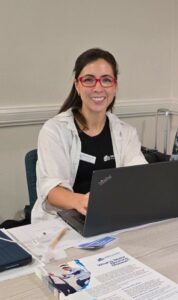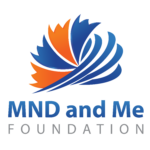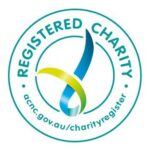Home | What is MND? | Newly Diagnosed
Newly Diagnosed
Being diagnosed with Motor Neurone Disease can feel extremely overwhelming. It will take time for you, your family and friends to deal with the news. Having access to factually correct information about the disease, services and supports available during this time will assist you process the diagnosis.

Hi, I'm Stacey Vener-Wren, the Client Services Manager at
MND and Me Foundation.
Our team are here to ensure no-one faces MND alone and offer advice, services and support.
If you or a loved one has recently been diagnosed with MND, we suggest that you follow these steps to help you process the diagnosis and get the support you need:
Step 1
Call Sarah at the MND and Me Foundation on 07 3394 5333 for an introductory chat (Monday – Friday 8:30am to 5:00pm)
Step 2
Register with the Foundation by completing this Contact Form and Consent Form
Step 3
Follow us on Facebook as we use this to provide research updates, announce support service initiatives and post about information sessions and workshops
Step 4
Register with Motor Neurone Association of Queensland to open up more support opportunities
Step 5
Talk to your Support Coordinator about accessing funding schemes, like NDIS, My Aged Care or DVA
Step 6
Create your support network by meeting with service providers and ask the Foundation about your local support group
Helpful Videos
Dr Robert Henderson, Neurologist
Types, treatments, what happens after diagnosis
Living with MND
Advice from people living with MND
Voice banking

Voice banking is a way for you to record and store your own voice to use at a later date if your speech declines. You record your voice and then the sounds are broken down to create a synthetic version of your natural voice. After you record your voice, it can be used on a smartphone, tablet, computer or other communication device. These devices are called ‘speech generating devices’. When using these devices to communicate, you can type or use pictures to create words and sentences.
For the best outcomes start voice banking as soon as possible.
Symptom Management
Early discussion about symptom management helps people with MND to plan ahead.
Supports and therapies that can maintain quality of life and address many of the effects of MND include:
- Easing pain and discomfort
- Managing fatigue
- Breathing easier
- Managing emotions
- Keeping mobile
- Sleeping better
- Managing swallowing problems
Research & clinical trial opportunities
The Motor Neurone Disease Research Institute of Australia (MNDRIA) is the research arm of MND Australia. The MNDRIA was established in 1984 as a national organisation promoting medical and scientific research into MND. The organisation has been driven forward by the vision to understand the causes, find effective treatments and discover cures for MND.
Here you will find current clinical trials that are recruiting in Australia.
Alternative therapies
ALS Untangled is a free online tool that reviews alternative and off label treatments, with the goal of helping people with ALS make more informed decisions about them.
Contact Us
If you have any questions or are unsure where to start, please contact Stacey Vener-Wren on 07 3394 5333 or [email protected].



